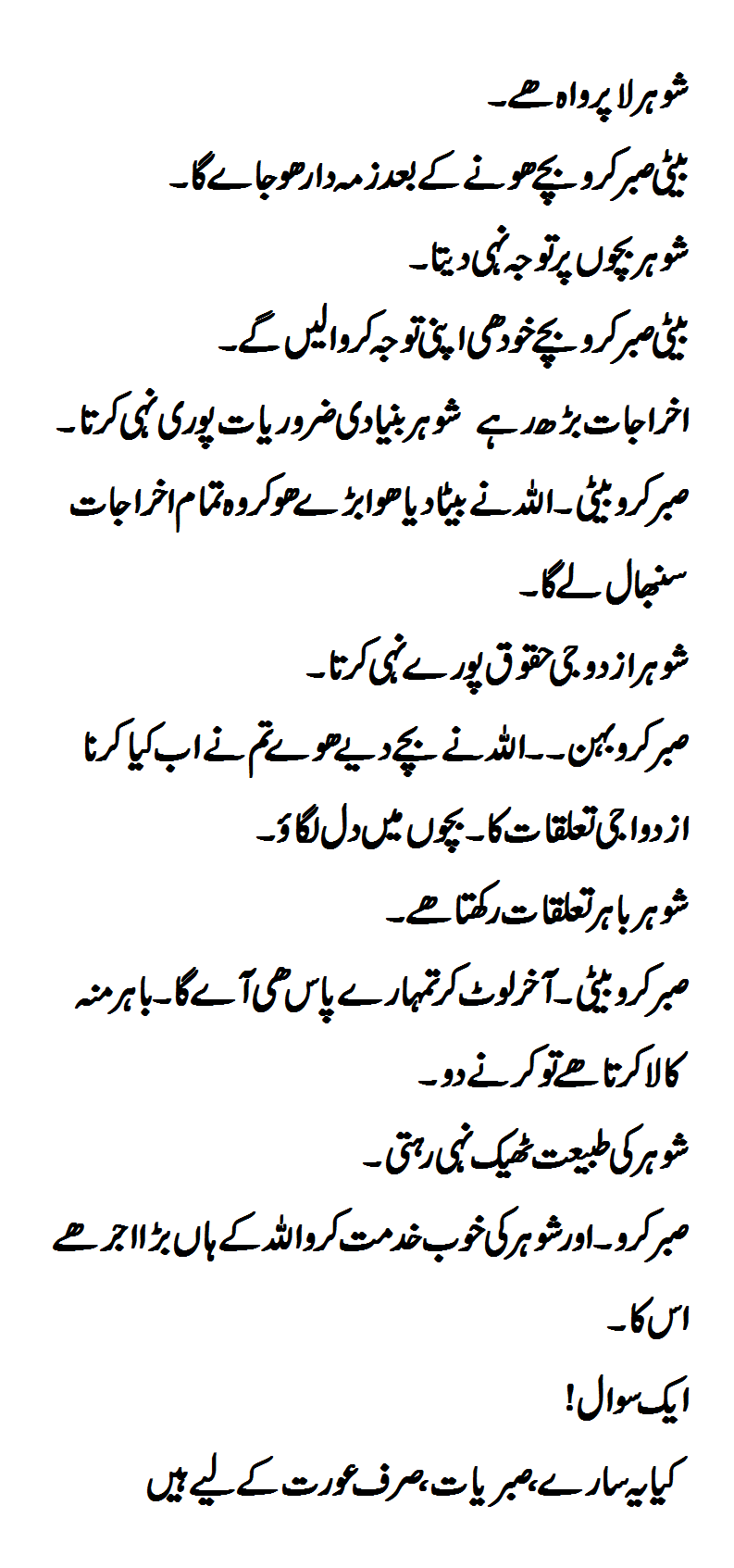The narrative presented above outlines a series of challenges faced by a woman in her marriage, where her husband appears to be indifferent and irresponsible in various aspects of their relationship. The recurring theme throughout the narrative is the call for patience, often attributed to religious beliefs. In this essay, we will explore the implications of these expectations and the gender roles they perpetuate.
Gender Roles and Expectations:
Economic Responsibility: The husband is portrayed as financially irresponsible, not fulfilling basic necessities. The wife is advised to be patient, with the belief that eventually, their children will take up this responsibility. This underscores the traditional gender role that expects men to be breadwinners and women to depend on them.
Childcare and Parenting: The narrative suggests that the husband is disinterested in parenting. Once again, the wife is asked to be patient, with the assurance that the children will grow up and take care of themselves. This perpetuates the stereotype that women are primarily responsible for childcare, while men are less involved.
Marital Rights: The husband’s failure to fulfill his marital rights is framed as a test of the wife’s patience. This viewpoint disregards the importance of mutual respect and equality in a marriage, reducing the wife’s concerns to mere tests of endurance.
Polygamy: The husband’s potential involvement in extramarital relationships is met with a passive response from the wife, who is told to let him be. This portrayal neglects the emotional and psychological toll such situations can have on women and suggests that they should tolerate infidelity.
Changing Nature of Relationships: The wife is encouraged to invest her emotions in her children rather than her husband, implying that children are a woman’s primary source of fulfillment. This reinforces the notion that women should find their identity and happiness through motherhood.
Health and Well-being: The husband’s deteriorating health is met with the suggestion that the wife should serve him diligently for the promise of heavenly rewards. This expectation places an additional burden on women to care for their husbands regardless of their own well-being.
The Bigger Picture
 This narrative reflects deeply ingrained societal norms and gender roles. It suggests that women should be patient and endure hardships within a marriage for the sake of fulfilling these roles. It also invokes religious beliefs as a means of justifying these expectations. However, it’s crucial to examine whether such expectations are fair or if they perpetuate inequality.
This narrative reflects deeply ingrained societal norms and gender roles. It suggests that women should be patient and endure hardships within a marriage for the sake of fulfilling these roles. It also invokes religious beliefs as a means of justifying these expectations. However, it’s crucial to examine whether such expectations are fair or if they perpetuate inequality.
